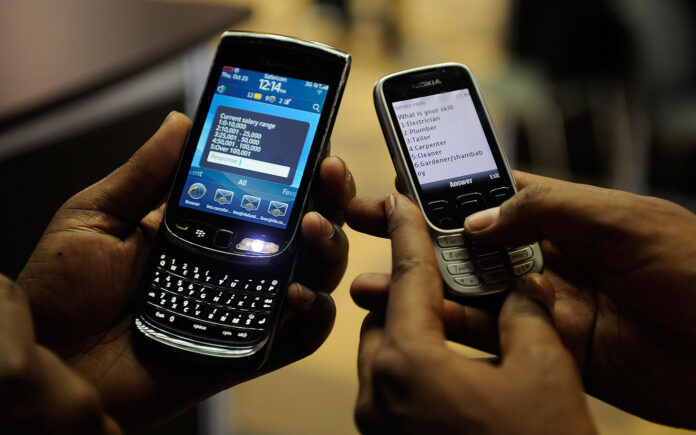Nigeria hits 323m active mobile phone lines, up by nearly 7m in two months
By Jeph Ajobaju, Chief Copy Editor
Active mobile telephone lines in Nigeria have grown to 323.62 million, having surged by 6.98 million in the first two months of 2023, according to latest figures released by the Nigerian Communications Commission (NCC).
The number of registered new SIMs grew by 6.98 million from 316.64 million in December 2022 to 323.62 million in February 2023, and the number of new active lines rose by 4.61 million from 222.23 million to 226.84 million.
NCC data shows the total number of inactive lines in February 2023 was 96.79 million, however, the total number of registered SIMs fell short of its August 2021 peak of 328.12 million.
There has been an increase in mobile connectivity in Nigeria, with the technology aiding communication and internet adoption, as more people become dependent on mobile phones.
Ajibola Olude, Association of Telecommunications Companies of Nigeria (ATCON) Chief Operating Officer, told The PUNCH that “one [factor] is the continuous adoption and utilisation of telecom services.
“There is also the emergence of the internet of things in the nation. Smart homes need SIMS for every gadget in them, which is also contributing to the growth in the active subscriber base.”
_________________________________________________________________
Related articles:
Active mobile subscribers increase to 222.57m, internet 154m
Telcos see nearly 5% growth but they are squeezing ISPs
Rural areas lack internet access despite rise in ISP numbers
__________________________________________________________________
Impact of new technologies
The launch of new technologies like 5G is expected to drive the next growth wave of the mobile industry.
The International Monetary Fund (IMF) anticipates 5G will be the main driver of mobile technology development and faster broadband speed growth in the coming years, per The PUNCH.
Mobile technology is increasingly becoming the main gateway to the internet for many people, although its cost continues to raise concerns in emerging markets.
“However, relative to per capita gross income, a better metric of affordability, the average mobile-broadband basket price is nine times higher in low-income developing countries than in advanced economies, making it even more difficult for low-income developing countries to bridge the gap in internet access,” the IMF said in a new report titled, ‘Internet Adoption Trends during COVID-19.’













